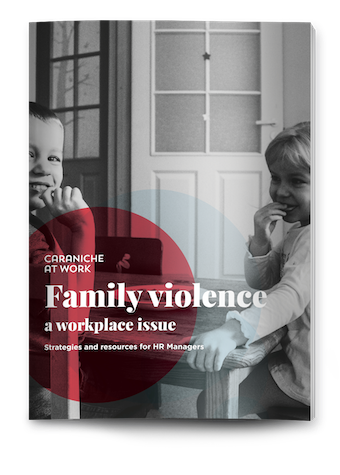
Given the global events we’re navigating, it might not be surprising to hear that people are suffering from burnout at work. But what exactly is burnout? And how can we prevent it in ourselves and others?
Burnout refers to a state of emotional, physical and mental exhaustion caused by excessive and prolonged stress. Those who experience it describe burnout as feeling empty or depleted, a sense of being weighed down or trapped.
Others liken it to a drained battery that can no longer hold its charge. Burnout is more of a reaction to the demands of one’s job and environment and isn’t specifically limited to those working with trauma clients, although it is commonly found in the helping professions.
Burnout is not being stressed or depressed in a way that’s unrelated to work. It’s also not something that’s a sign of weakness or evidence you can’t keep up with your job. Rather, burnout is the result – and often the endpoint – of prolonged stress.
In the workplace, people experiencing burnout report feeling depleted to the point of collapse, that they don’t recognise themselves and can’t seem to fathom how they managed to ignore the signs that they were heading towards such extreme fatigue.
So how might we spot symptoms of burnout before it’s too late? Here’s what to look for.
Common symptoms
Physical – chronic low energy or exhaustion, aches and pains, being run-down or sick more often, problems sleeping or declining health.
Mental – boredom, forgetfulness, poor concentration, fault finding, irritability, cynicism or negativity.
Behavioural – withdrawing from responsibilities, procrastinating, lack of engagement, isolating from others, using food, drugs or other substances to cope, taking frustration out on others, coming in late or not at all, or conversely working overtime.
While these symptoms can manifest differently in each of us, there are common contributing factors that can lead to burnout in the workplace. Knowing these can help us to gauge for stressors that might be starting to affect us and our colleagues in the workplace.
Contributing factors
Several elements can contribute to the onset of burnout in the workplace, at an individual and organisational level. Lack of clarity in one’s role at work is one of the most common causes of job stress and as a result burnout.
Here are some other contributing factors:
Organisational factors
Excessive work hours, time pressure, workload, chronic physical and psychological demands and/or an ongoing imbalance between one’s role and the resources available.
Lack of job control, professional support and/or effectively designed work systems
Individual factors
Lack of social support, work-life balance, control, purpose or meaning at work, experience dealing with trauma, effective coping skills and boundaries.
Preventing burnout
Even if you’re in a position to create a more supportive workplace and address the contributing factors that lead to burnout at work, you might still be at risk of burning out yourself. Here are some things we can all do to take back control of our working life.
Is it underchallenged burnout because you’re bored with your workload? Or are you overworked and under-resourced? Could this burnout be detrimental to your health?
Sleep gives your body adequate time to heal, rest and rejuvenate every night. Lack of sleep compacts burnout because you’re unable to focus or think straight enough without it.
Be open and honest with co-workers about why you aren’t taking on commitments. Use this time to focus on only a few tasks that you feel confident you can execute.
Block out a certain amount of time each day to focus on yourself. Go for a walk or do some exercise. Hang out with family and friends. Use this time to do whatever you want.
Understand that perfection is impossible. You might have to ask for extensions or negotiate other commitments, but that’s okay – your wellbeing should come first.
Break your work down into smaller tasks with their own deadlines. Not only will you find yourself finishing tasks faster, but it will be easier to focus on getting something done.
Write down any feedback your colleagues give you about your work. Be it positive or negative, use this feedback to make informed decisions about how you can improve.
Don’t fall into the trap of giving yourself longer and longer breaks or extended vacations every couple of months. This exacerbates burnout as it doesn’t address what is wrong.
The first step in preventing burnout is to accept that it’s happening. Identify the reasons and make a plan to address the issues properly. Evaluate your options when it comes to your work, reach out to your supervisors and be sure to ask for support.

Many of the new tech based EAPs have been making inaccurate claims about traditional EAPs as part of their marketing and promotion.
Read more
Moral injury in the workplace can negatively impact our psychological wellbeing and mental health. Here’s why it matters.
Read more
When choosing how to cultivate wellness in the workplace, it’s never been more important to take an organisation-wide approach. Here’s why.
Read more
Australian workplaces are waking up to the impact of family violence. Caraniche at Work has developed a free report for HR Managers who want to take the lead.